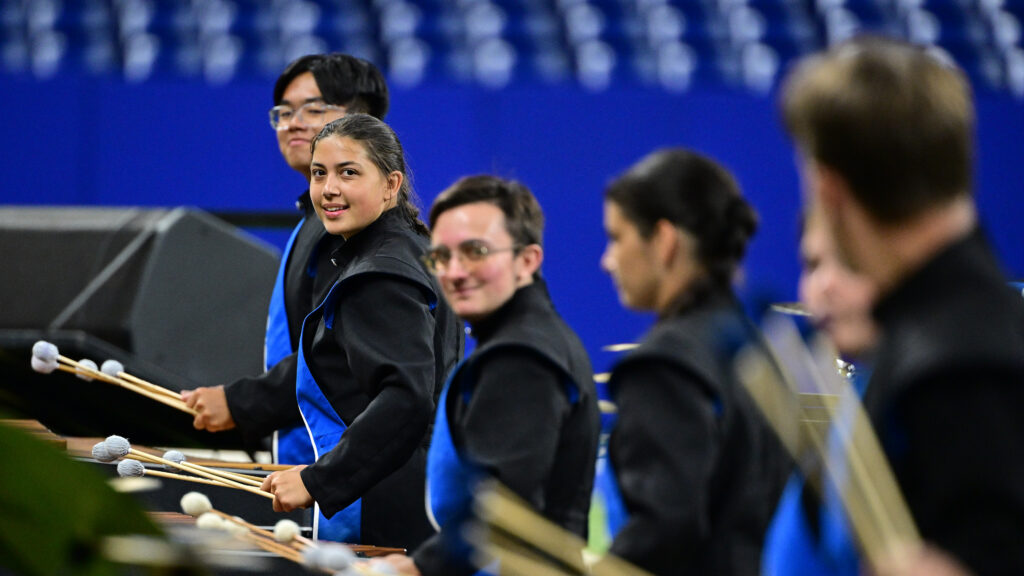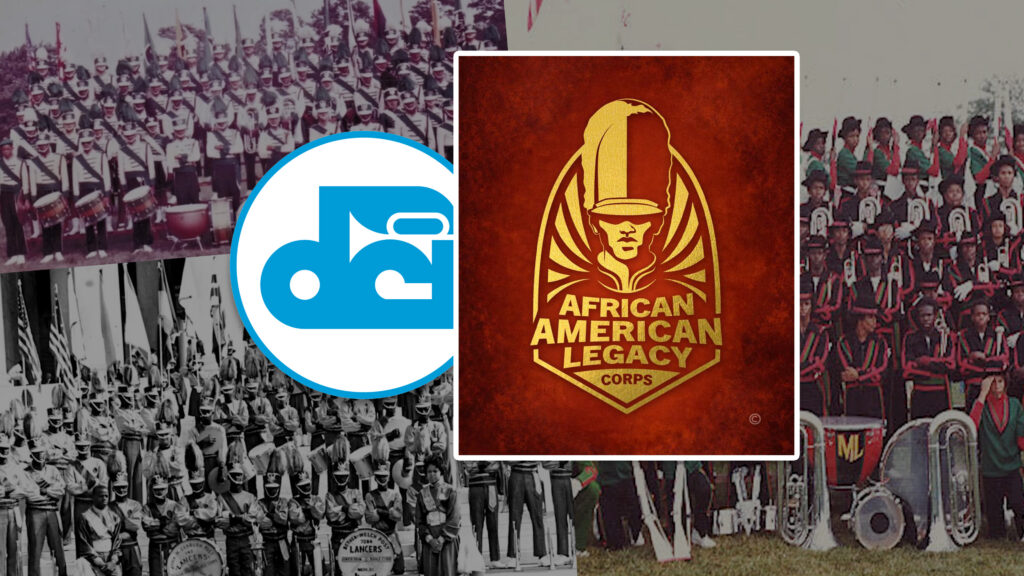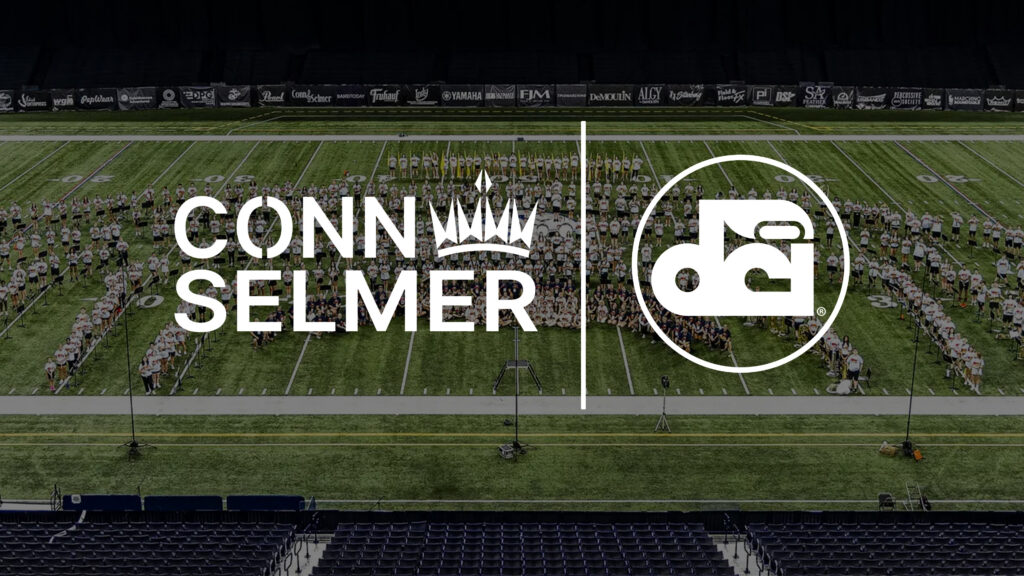Dennis G. Koch is a proud alumnus of a small corps. This is his story.

“I marched in a small corps from Quincy, Ill., in the 1970s, in my opinion at the height of the drum and bugle corps activity. DCI was very young and other shows — V.F.W., American Legion, the U.S. Open, and Toledo — still had national prominence. “When I joined the Flying Dutchmen in the fall of 1971, the Cadets were from Garfield, the Cavaliers were from Chicago, the Colts were still Colt .45 and the Vanguard referred to Des Plaines, not that “new” corps from California.
Our musical director was a young, tall Cavalier soprano named Kent Scott. The corps marched parades in 1971 with equipment left over from the old American Legion Post 37 Corps; one-valve bugles, 25-year-old snare drums and “duo toms” that looked something like a base drum split in half and mounted horizontally. “After a May exhibition at Western Illinois University with Phantom Regiment and our own shown in Quincy, Ill., the next day, our first real show was the 1972 V.F.W. State Prelims in Peoria, Ill.
Fortunately, prelims in those days meant an eight-minute show (our concert number of “Proud Mary” wasn’t quite finished yet). We survived inspection. Only us “old guys” remember inspections. We had no penalties and put on a decent show for our first time out. “We didn’t make finals, but we didn’t embarrass ourselves, either. After listening to our instructors all winter, each of us wanted to see the Cavaliers, and they didn’t disappoint. We only marched in three shows competitively that year, but we saw the Cavaliers twice, the second being the Illinois State Fair in August.
Anyone who has marched on the track at the Illinois State Fair will be able to relate to this, for you see, the track is just as long as a football field, but only half as wide. You can imagine what kind of impression and what kind of sound is made when you put a corps the size of the Green Machine on a field that small while playing into a covered grandstand. “In the years that followed, we went from really bad (in 1973, we took last place at the DCI World Championship in Whitewater with a score of 19 and change) to respectable in 1977, when most of the original nucleus of the corps became college age and were about to move on.
“Normally, the shows we marched had corps with names like the Capital Chargers and Falcons from Springfield, Ill., Fox Valley Raiders from Aurora, Ill., Emerald Knights from Cedar Rapids, Iowa, and others, but there would normally be at least one “big” corps at the show, usually the Cavies, Phantom or Black Knights. We’d always be the first or second corps off the line, while the sun was still shining, and we would talk about how cool it would be to be the last one off and perform under the lights. “For those of us hard-core drum corps nuts, we’d find a way to get to the nearest big show, usually Alton, Ill., and watch the big guys come off the field.
There was as much discipline and precision in how they would ground their equipment and move into the stands as there was in their shows. We’d then go back and try to convince all the young kids in our corps to try and act the same way. “By 1977, most of us knew that this would be our make-or-break year. Some of us were going on to college and others were making plans to join other corps after the season.
We had two tours planned that year, a first for us. In June, we went to Florida. We arrived in Jacksonville about 10 p.m. the night before a show at the Gator Bowl. The principal met us at the door of the high school where we thought we were to spend the night and informed us and the Zephyrs from Wisconsin that he had already told the show’s organizers that the school was not available. “We ended up sleeping in the bleachers of a local football stadium that night … not a great way to start the tour. We finished second at that show to the Miami Vanguard and to this day thought that we had won our first show ever.
We finished the tour in Ft. Myers and headed back to Illinois. V.F.W. State was in Elk Grove Village, Ill., that year and we were ready. Our prelims show put us in fourth, and for a few hours we were among the best in the state. “We got our wish to go on under the lights that night, but couldn’t match the intensity of the morning show and we fell to eighth.
We went back to Whitewater that year for DCI Midwest, hoping to make up for our last-place finish four years earlier. Alas, everyone was overwhelmed by being at a DCI show and we choked, putting on by far our worst performance of the year. “Second tour took us to Boulder, Colo., for DCI World Championships. We entered Division II and several of us entered the individual contests. A few of the older guys got together and did a few crazy things to keep everyone loose and we put on one of our better shows in prelims.
We fell short of our goal to make finals but we had one show left, American Legion Nationals. We knew that a number of the DCI corps were heading home and wouldn’t be competing. We also found out that the American Legion was going to award 2.0 points for presenting the colors, something that had pretty much disappeared by 1977. “We made a few changes in the show and went to prelims in Golden, Colo., on the same field that we had used for practice all week.
Our performance took place during a downpour and was probably the most fun any of us had had in a show. We recorded our highest score ever and beat the Black Knights that day, capping our season. Some things never change, though: We went to finals in Denver at Mile High Stadium to watch finals. “After the season, the corps tried to rebuild. We lost some of our members
to the Kilts, others to Phantom, one to Santa Clara and some to other corps — but we never regained what we had had. I marched as drum major in 1978 before college became too much of a distraction and the Flying Dutchmen folded a year later, following the 1979 season. “Given today’s state of the activity and the cost to be competitive, I doubt that you’ll ever see the number of small corps that was around back then.
We were never ready for the “big show,” but thousands of kids from corps — like the Bellettes, Stardusters, Vaqueros, Eye Openers, Precisionaires, Royals, various Lancers and Knights, Statesmen and others who marched in circuits like our own Mid-America Circuit — were just as proud to carry our colors and represent our towns and cities as the big boys that we admired from Madison, Park Ridge, Concord, Santa Clara and the rest of DCI.” Dennis G. Koch CPA CGFM
Flying Dutchmen Drum & Bugle Corps Quincy, Illinois.
Michael Boo has been involved with drum and bugle corps since 1975, when he marched his first of three seasons with the Cavaliers.
He has a bachelor’s degree in music education and a masters degree in music theory and composition.
He has written about the drum corps activity for over a quarter century for publications such as Drum Corps World, and presently is involved in a variety of projects for Drum Corps International, including souvenir program books, CD liner notes, DCI Update and Web articles, and other endeavors. Michael currently writes music for a variety of idioms, is a church handbell and vocal choir director, an assistant director of a community band, and a licensed Realtor in the state of Indiana. His other writing projects are for numerous publications, and he has published an honors-winning book on the history of figure skating. His hobbies include TaeKwonDo and hiking the Indiana Dunes. But more than anything, Michael is proud to love drum corps and to be a part of the activity in some small way, chronicling various facets of each season for the enjoyment of others.





